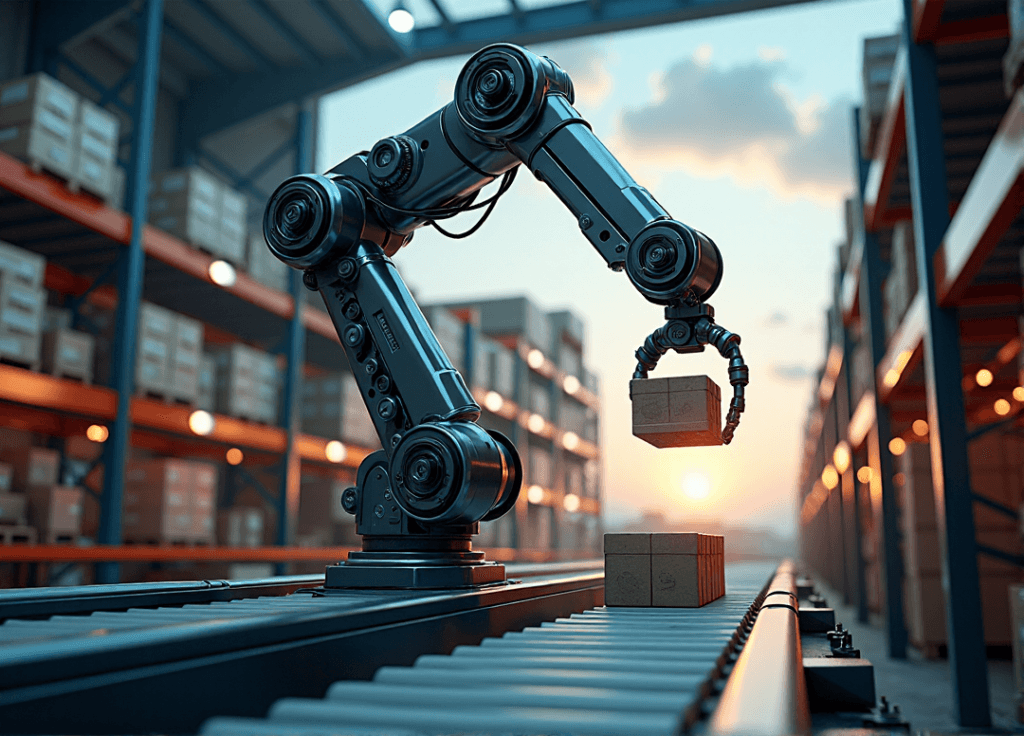AI-Driven Supply Chain Revolution: Transforming Business Operations for Future Growth
Will AI Automation Skills Replace Human Labor by 2030, Revolutionizing Supply Chain Efficiency Forever?
As businesses navigate the rapidly evolving landscape of AI-driven innovation, developing essential Ai automation skills is crucial for staying ahead. In this article, we’ll explore how mastering AI Automation Skills can drive supply chain transformation and unlock future growth opportunities.
The Rise of AI in Supply Chain Management
The adoption of Artificial Intelligence (AI) in supply chain management has been growing steadily over the years. According to a report by McKinsey, the use of AI in supply chains is expected to increase from 10% in 2020 to 35% by 2030. This shift towards AI-driven supply chains is driven by the need for increased efficiency, reduced costs, and improved decision-making.
Benefits of AI in Supply Chain Management
The benefits of AI in supply chain management are numerous:
- Improved forecasting accuracy: AI algorithms can analyze historical data and predict demand with greater accuracy.
- Enhanced visibility: AI-powered systems provide real-time visibility into inventory levels, shipping status, and other key metrics.
- Increased efficiency: AI automation skills enable companies to automate routine tasks, freeing up human resources for more strategic activities.
- Reduced costs: AI-driven supply chains can reduce costs associated with inventory holding, transportation, and labor.
Key AI Technologies in Supply Chain Management
Several key AI technologies are being used in supply chain management:
- Machine Learning Capabilities**: Machine learning algorithms enable systems to learn from data and improve their performance over time.
- Artificial Intelligence Expertise**: AI expertise is used to develop intelligent systems that can make decisions and take actions autonomously.
- Automated Process Management**: Automated process management involves the use of software to automate routine tasks and business processes.
The Role of Human Labor in an AI-Driven Supply Chain
While AI automation skills are increasingly being used in supply chain management, human labor remains essential for many aspects of the operation. According to a report by Gartner, while AI can automate routine tasks, humans are needed for high-touch activities such as:
- Strategic planning and decision-making
- Customer service and support
- Complex problem-solving and issue resolution
Developing Essential AI Automation Skills
To stay ahead in an increasingly digital economy, businesses must develop essential AI Automation skills. This involves:
- Investing in AI training programs for employees
- Developing a culture of innovation and experimentation
- Collaborating with AI experts and vendors to leverage their expertise
Case Study: How AI is Transforming Supply Chains
A case study by Boston Consulting Group highlights the success of an AI-driven supply chain transformation at a leading retail company. The company used machine learning algorithms to optimize inventory levels, resulting in:
| Indicator | Current Value | Target Value |
|---|---|---|
| Inventory turnover | 2.5 | 3.5 |
| Inventory levels (in days) | 30 | 20 |
| Shipping accuracy | 95% | 99% |
Conclusion
The adoption of AI in supply chain management is transforming business operations for future growth. By developing essential AI Automation Skills, businesses can leverage the benefits of AI-driven supply chains, including improved forecasting accuracy, enhanced visibility, increased efficiency, and reduced costs.
Additional Sources of Information
For more information on AI in supply chain management, consider the following sources:
- Mckinsey & Company**: “AI in Supply Chain Management: A Growing Trend”
- Boston Consulting Group**: “Transforming Supply Chains with AI and Machine Learning”
- Gartner**: “Supply Chain Management in the Age of Artificial Intelligence”
Explore more in our category page or visit our homepage.
